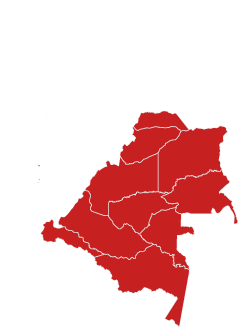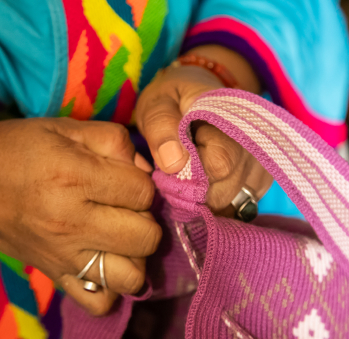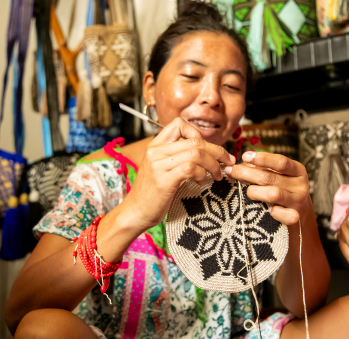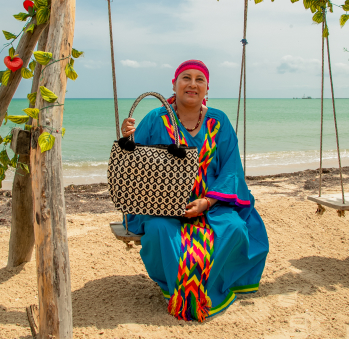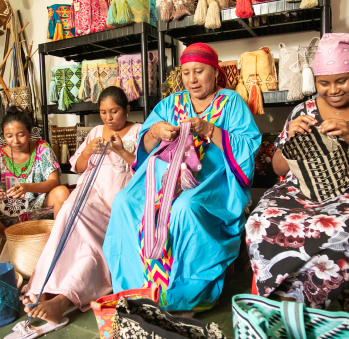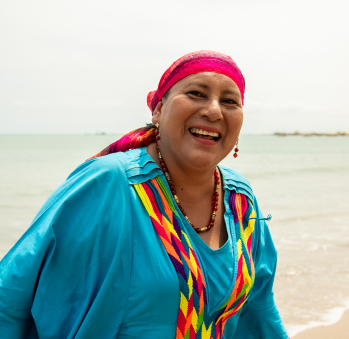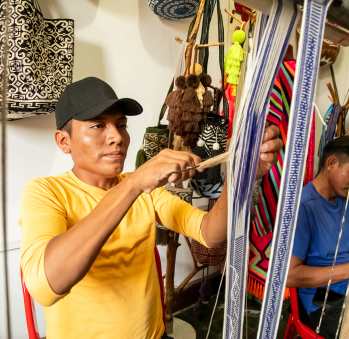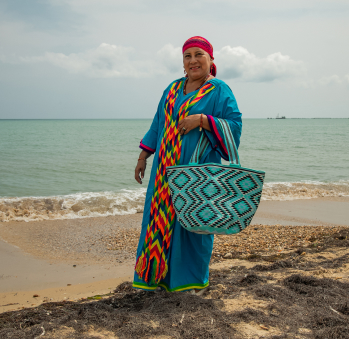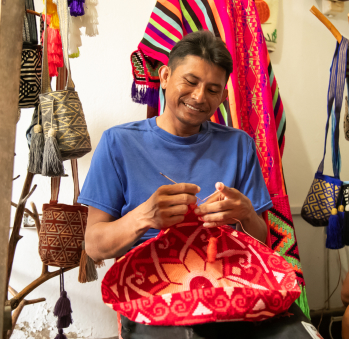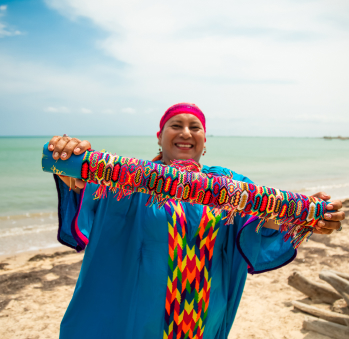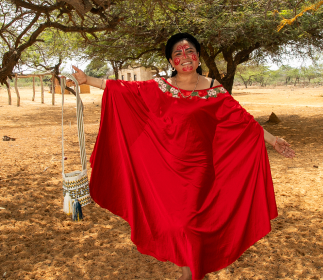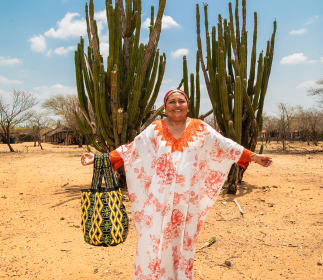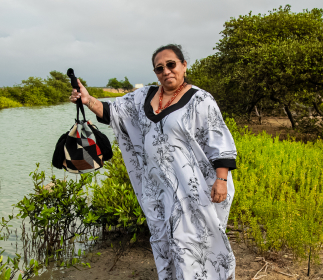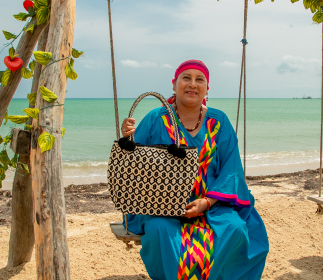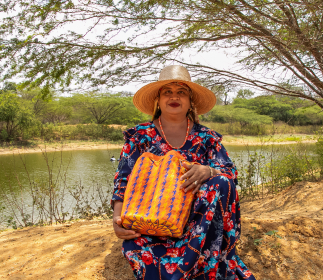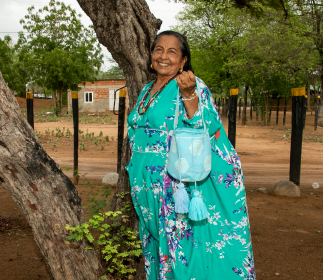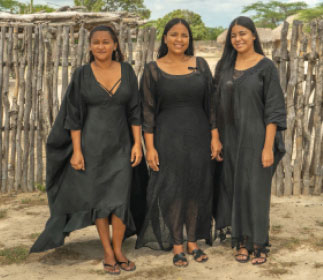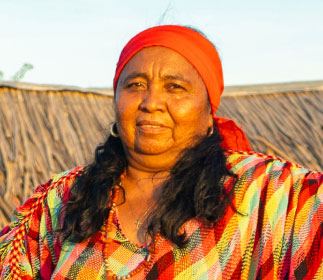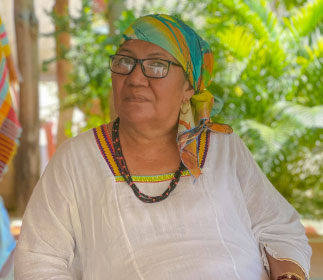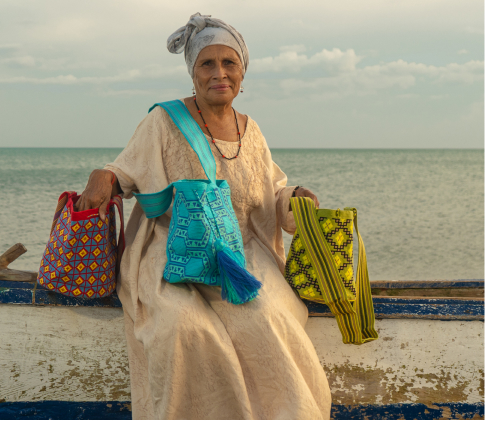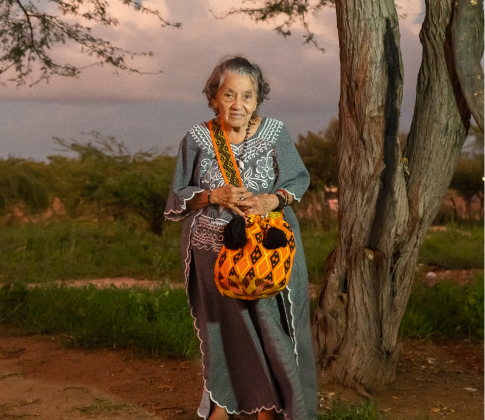María Cristina Gómez
Workshop: Jalianaya
Craft: Weaving
Trail: Riohacha - Nazareth Route
Location: Manaure, La Guajira
SCHEDULE YOUR VISIT
Calle 2 # 2-07 esquina, Manaure, La Guajira
3160536671
gomezcristi0817@gmail.com
Maria Cristina has been an artisan since the age of 5. As she puts it, she was born an artisan thanks to the teachings of her mother, Dolores Jusayú, who, in turn, was trained by her paternal grandmother in various types of weaving, becoming a highly skilled artisan. Dolores learned, like many Wayuu women in their beginnings, by weaving the masculine sash or si’ira, and during her long seclusion of two years, she became adept in the art of weaving, making, among other things, the spider hammock, the double hammock, fringes, and bags of various sizes, as well as mastering different weaves and the paddling process. That was the landscape in which Maria Cristina grew up. Being an only child, she received all the attention and her mother dedicated herself to teaching her legacy. Not in vain her own seclusion was short, as she already had the best foundations to continue with a life of weaving.
The life of these Wayuu women unfolds in a scenario different from the Guajira that we imagine, as they live near the famous salt mines of Manaure, that gigantic expanse of something like four thousand hectares of salt formations from which almost 70% of the sea salt consumed in Colombia comes. That almost lunar landscape, of white mountains drying in the sun and creating veils of pink in the water with their reflection, is undoubtedly a place of exceptional beauty. However, for our protagonist, the natural wealth does not match those who exploit it through craftsmanship, making many of the Guajiro people in the area people with immense needs.
With this sensitivity, Maria Cristina has dedicated her life to trying to improve the living conditions of those around her. And although she has managed to consolidate a solid artisanal project with her family, her charitable vein has led her to extend her wings to the artisans of her region. Precisely for this reason, she founded the artisan workshop Jalianaya, a linguistic composition meaning jalia, help or care, and naya, them, that is, help for them, or to help them.
Thus, Maria Cristina’s community obtained a loan for a family artisanal productive project which was the basis for where they are today, a network of 150 artisans deployed in neighboring rancherías. It all started in 2002, when she managed to organize the scaffolding to have their first production of bags with the support of 50 women who joined the process. That same year they sold their first products at a craft fair in Bogotá, which allowed them to start paying off the loan. They bought the thread in the capital to distribute it among the associated women, to whom they again taught the traditional symbolism through training sessions and design booklets that helped them improve the quality of their products. Thus, everything took shape.
Having had no daughters, but three sons, Maria Cristina highlights an important change in culture, which was the involvement of men in the process of making bags and gauze, which has allowed for better coexistence and distribution of responsibilities in artisanal work. She recalls how, at the beginning, when she went to Chevron to teach weaving to its employees, men liked the craft – how could they not, if they were born among the threads of their grandmothers, mothers, and aunts – but they were ashamed to admit it weaved in secret. However, she managed to overcome the shame and turn it into a skill and an ideal complement for household economies and a way to tighten their relationships with their wives and partners. Her pedagogical work, as a Bachelor of Education, was one of the great contributions to the sector and has managed to take her skill beyond the borders of her own family. In fact, she highlights with great emotion how she managed to involve in her project a mute boy, Juenis, whom she says is a wonderful weaver who was able to show his talent beyond his own limitations.
Today, she collects artisanal material from the neighborhood, has several sales points, and a workshop where she finishes the bags. She also chairs the National Federation of Wayuu Artisans and leads the Jalianaya Foundation, which seeks to channel resources for projects that benefit more artisans. Of course, with so much occupation, I ask her if she still weaves, and she clearly says yes, that without doing it, she wouldn’t feel complete. And she is seen joyful and fulfilled, with enough energy to continue leading, hoping that her son Etwin will be her heir.
Craft
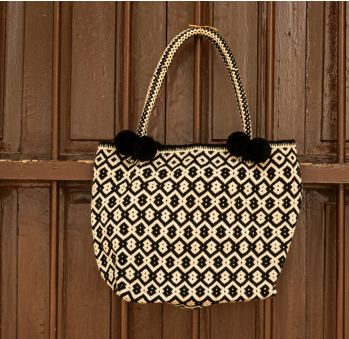
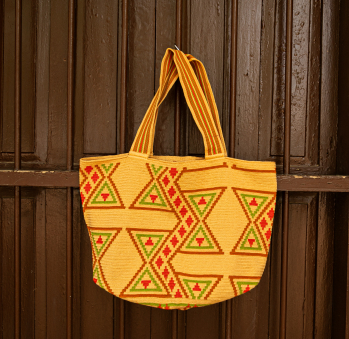
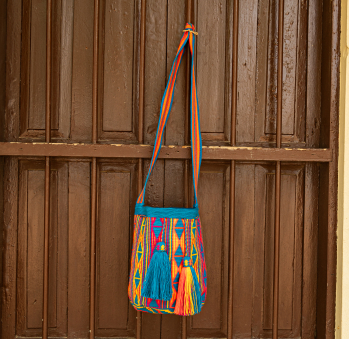
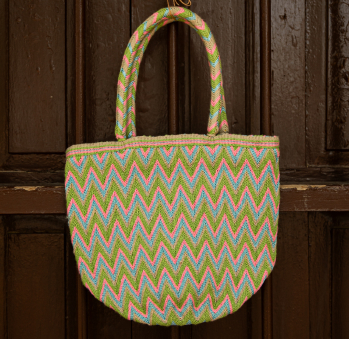
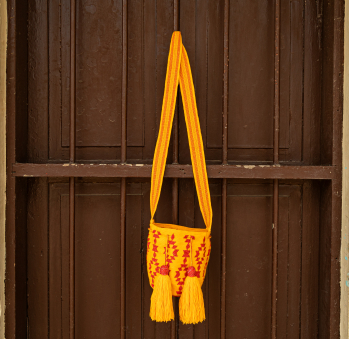
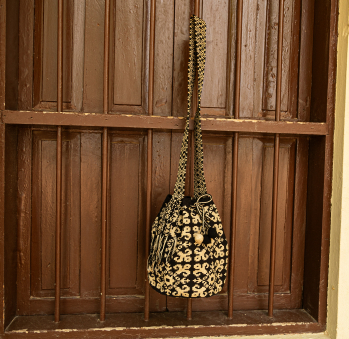
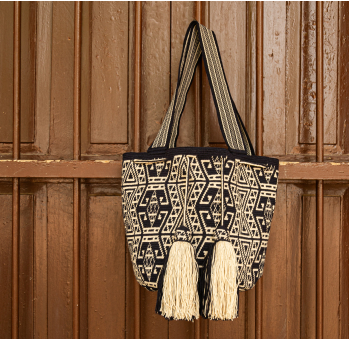
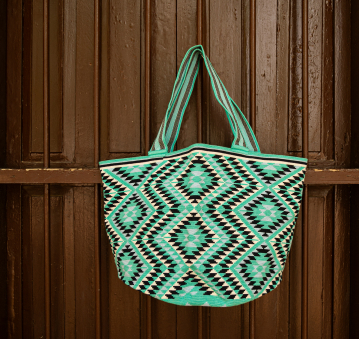
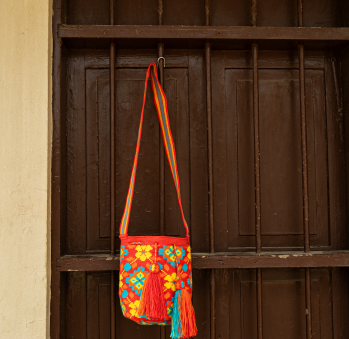
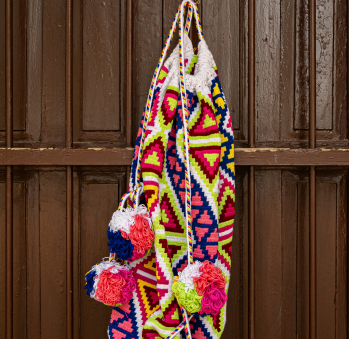
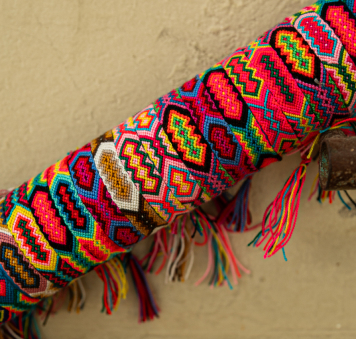











Artisans along the way
Artisans along the way
No puede copiar contenido de esta página

